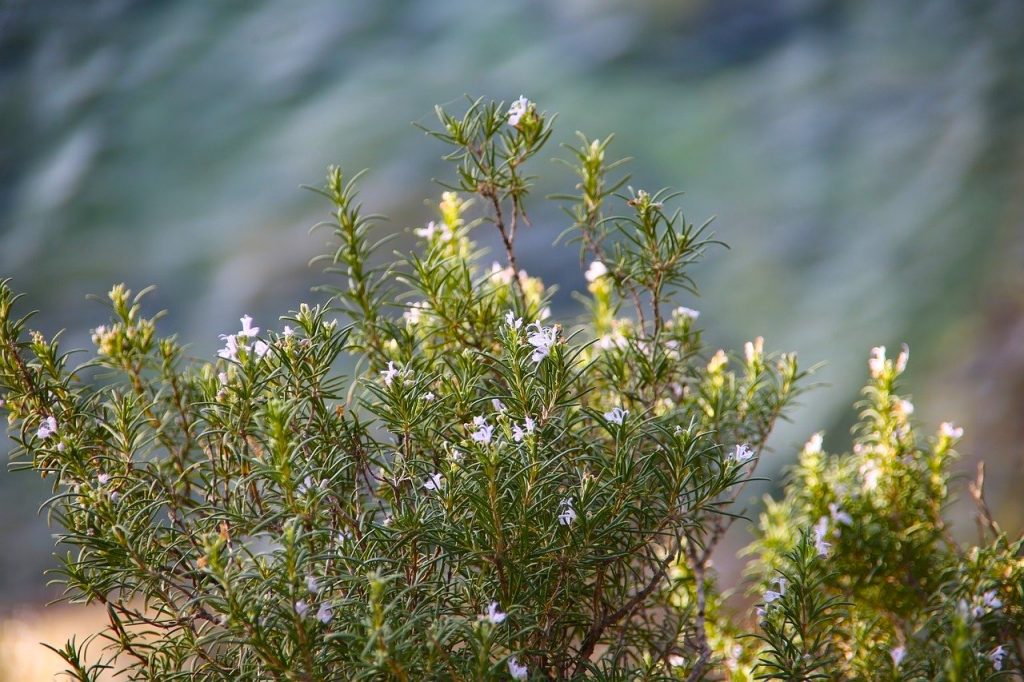Rosemary (Rosemarinus officinalis) is one of the oldest known medicinal herbs. This fragrant plant has been used over the centuries to improve memory, support digestive health, and add a killer flavor to roast lamb (and practically everything else).
Rosemary is a perennial evergreen found across the world in warmer climates and is native to the Mediterranean region. The pungent plant earned its name from the Latin word Rosmarinus which means “dew of the sea.” Rosemary requires very little water to survive and actually thrives on moist on-shore breezes.
Rosemary can grow between four and six feet tall. Some varieties have a vertical, bush-like structure while others are trailing and low to the ground. The plant’s dark green needle-like foliage, similar in shape to spruce, is used for both culinary and medicinal purposes.
This aromatic plant grows quite easily in either a container or free in the garden. The small purple flowers are pleasant and attract many different pollinators. One animal that doesn’t like Rosemary is the gopher. If you’ve ever had these marauders wreak havoc in your garden you’ll be glad to have a defense against them that doesn’t involve TNT. – Remember the Battle of Bushwood!
Having this herb fresh from the garden is a real treat. The flavor has notes of evergreen, citrus, lavender, pine, sage, pepper, mint, and sage. Rosemary sprigs are used as an aromatic accent for most any dish. The leaves can be used fresh or dried as a seasoning for beef, pork, fish, lamb, poultry, and roasted vegetables.
Most likely due to its aromatic qualities the Ancient Egyptians incorporated rosemary in their burial ceremonies. Similarly the Greeks would place a rosemary sprig under their pillows to ward off nightmares. Greek students would even braid rosemary sprigs into their hair to help them ace exams.
Today’s scientists attribute the plant’s cognitive support to its high percentage of camphor. Rosemary essential oil contains 10–20% camphor.
Camphor was used in ancient Sumatra to treat sprains, swellings, and inflammation and has long been a staple in traditional Chinese and Indian medicine.
Native Americans turned to rosemary as a digestive aid and decongestant. They would also rub rosemary oil on their scalps as a cognitive stimulant, dandruff treatment, and cure for hair loss. In fact, a 2015 study comparing rosemary oil and minoxidil 2% (commercially known as Rogaine) found no significant difference between the two in terms of hair growth after six months of use.
Whether rosemary is used for cooking, memory enhancement, hair loss, rodent repellent or keeping monsters out of your nightly dreams, this ancient plant should be a staple in any outdoor connoisseur’s kitchen and garden.
